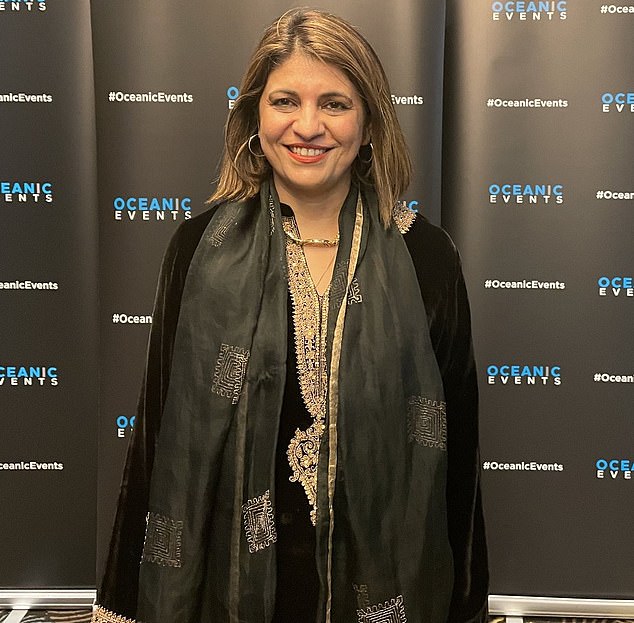How being the golden child or the black sheep can define your life: Top experts reveal the toll your family role can take… and how to break free
When disputes arise, do you always take on the role of peacekeeper, or do you stay out of the way until tempers cool? Are you the apple of your parents’ eye – or the scapegoat when something goes wrong?
Because whether you’re the firstborn, the middle child, or even an only child, there are some universal “roles” or positions that we often adopt when interacting with our family members. If left unchecked, these behavior patterns can continue into adulthood and affect other relationships – and not always in a healthy way.
An important part of my work as a relationship and family psychotherapist is helping people identify the family roles they adopted at a young age, and to help them live in a way that reflects what they really want, rather than according to a stereotype that is prescribed. to them.
Here are some examples of the role you may have been playing all your life – and how you can escape it to live a more meaningful life.
Whether you are the firstborn, the middle child, or even an only child, there are some universal “roles” or positions that we often adopt when interacting with our family members.
The golden child
Although they may deny it, families often have a “golden child.” Perhaps you were the studious one, or the first in your family to get into university, and your parents always praised you and celebrated your achievements.
This may sound wonderful, but it’s stressful to have to bear the burden of your parents’ ambitions (and the envy of your siblings).
For some, this pressure can lead to adolescent rebellion and self-sabotage. In young women, the increased levels of anxiety can sometimes manifest in eating disorders or other mental health problems.
As an adult, the continued status of a golden child can cause you to buckle under the weight of expectations, burdened by over-inflated hopes and dreams. Clients come to me with anxiety and depression and say they are constantly afraid that they will let everyone down and that they feel like they will never be good enough.
I remind them that no one is perfect, and encourage them to discover the playful, rebellious side of their nature so they can create a more realistic image of themselves.
The black sheep
This label is often given to the child who doesn’t quite fit in or who has brought shame to the family. If you’ve been given the black sheep label, chances are you’ll have to do your own thing while your parents focus on their golden child.
It can leave you feeling ashamed, isolated, and blamed for everything, even when events are objectively beyond your control.

Dr. Reennee Singh says an important part of her work as a relationship and family psychotherapist is helping people identify the family roles they took on at a young age.
In adulthood, it can also cause people to accept bad behavior towards them because they think they are not worthy of kindness.
I work to help black sheep understand that they may carry the burden of shame for the entire family and that they do not need to be defined by it.
The parent-child
In many families, one child – often the eldest – will take on the role of quasi-parent, caring for younger siblings and later taking care of older parents when they become ill.
If you are given responsibility at a young age, it is common to carry this sense of obligation into adulthood, giving you a sense of duty to your family.
Without being aware of it, those in this role can transfer this sense of responsibility to their spouse and children because they are overly demanding and critical. This role can lead to exhaustion and resentment because you put so much pressure on yourself that you don’t have the time or energy to pursue your own goals.
It can be very difficult to let go, but you have to give yourself permission to hand over the reins and encourage those around you to fill the void.
The baby
Usually it is the youngest child who fills the role of ‘baby’, but it can also go to a child who is vulnerable, perhaps less healthy or neurodiverse. Other members of the family are expected to watch over and support the baby.
If you’re a baby, this layer of protection can be helpful when you’re young, but you may find it difficult to launch yourself into the adult world.
Some babies can fall into the trap of “conscious incompetence,” because they have learned that by avoiding or messing up tasks, someone will intervene, allowing them to avoid responsibility.
I always encourage babies to break out of this role. However, adult siblings and parents must also be willing to let go of their role as caregivers so that the baby can grow up.
The mediator
In many families, there is one child who takes on the role of keeping the peace between warring siblings or parents.
But while it can help you gain useful mediation skills, it can be difficult. I see people exhausted by the effort of considering everyone’s point of view, and suffering painful divisions in loyalties when forced to choose between family members.
Try to find ways to protect yourself from the anxiety that comes with having to choose; it can be liberating to set boundaries and form independent relationships with the people around you so you don’t get caught up in every fight.
It can be as simple as saying something like, “If you have a problem with X, please discuss it with them directly, I don’t want to be involved.”
For more information see reeneesingh.com/
As told to Louise Atkinson.
